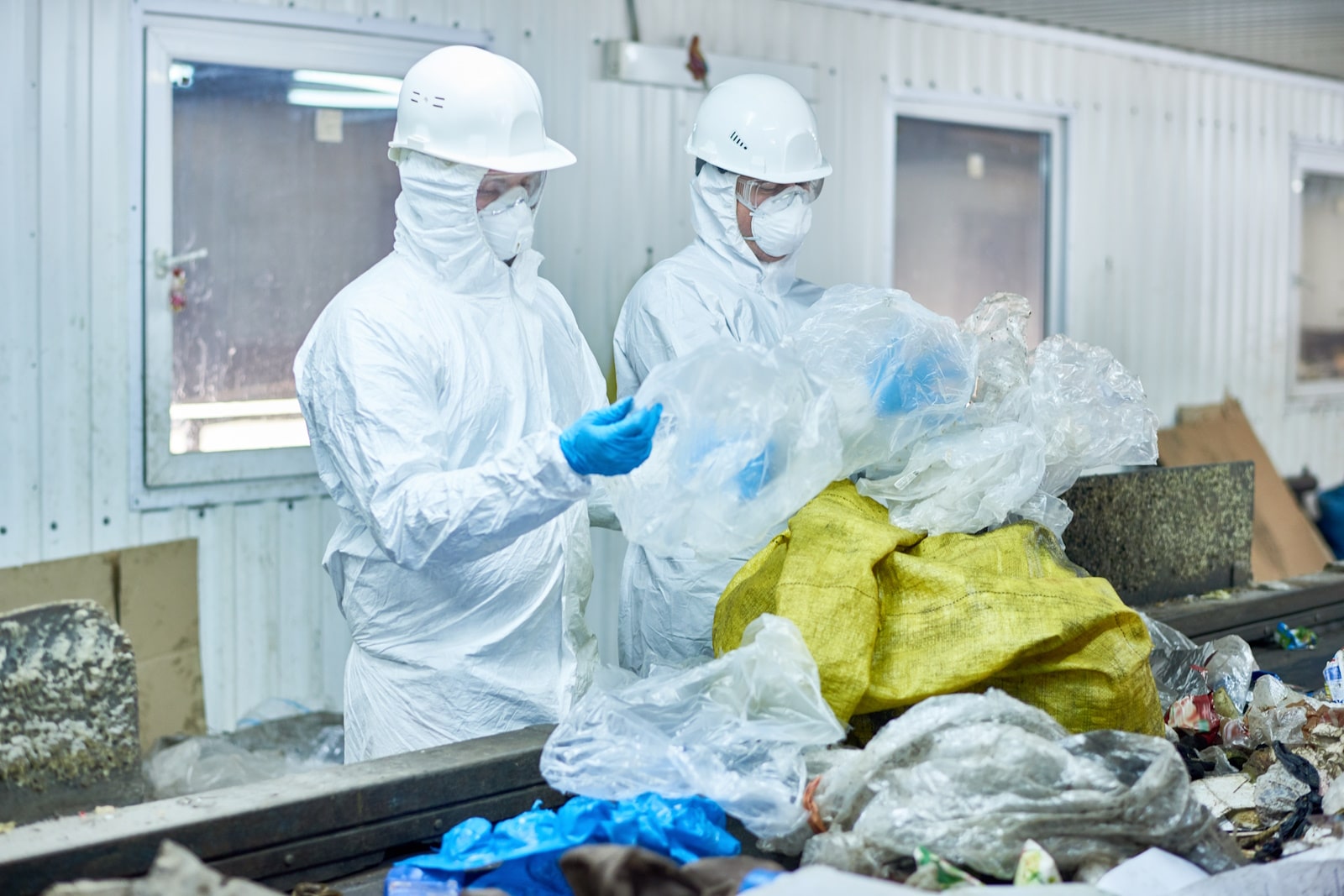How a Medical Waste Company Navigates Health Crises
In times of global health crises, medical waste management becomes a critical issue. Pandemics, such as the COVID-19 pandemic, result in an overwhelming increase in healthcare-related waste, stressing existing systems and posing significant risks to both human and environmental health. This article explores the surge in medical waste during pandemics, how the average medical waste company had to make regulatory adjustments to address this surge, and the steps being taken to ensure more sustainable waste management practices in the future.
The Surge in Medical Waste During Pandemics
Pandemics lead to a significant rise in healthcare activities, which in turn causes a sharp increase in medical waste for every medical waste company. Hospitals and healthcare facilities experience a surge in patient numbers, increased medical testing, and a surge in the use of personal protective equipment (PPE), all of which generate large quantities of medical waste. From syringes, masks, and gloves to discarded vials and used PPE, the volume of waste generated can become overwhelming.
For example, during the COVID-19 pandemic, it was reported that medical waste loads in healthcare facilities increased by up to tenfold. More than 8 billion COVID-19 vaccine doses were administered worldwide, creating an additional 144,000 tonnes of waste, including vaccine vials, needles, and safety boxes. This spike in waste not only strained waste disposal systems but also led to challenges in managing this waste in an environmentally responsible way.
Regulatory Adjustments for a Medical Waste Company Pandemics
One of the immediate responses to the surge in medical waste during a health crisis is the adjustment of regulations around its disposal. Governments and health authorities often relax or alter existing regulations to enable the swift disposal of increased waste volumes. These regulatory adjustments are critical to ensuring that medical waste is disposed of promptly and safely, especially during a crisis when speed is of the essence.
In South Africa, the Department of Health introduced temporary measures to deal with the increased medical waste created by the pandemic. The regulations around medical waste disposal were relaxed to allow for quicker processing. For instance, certain categories of medical waste were permitted to be treated as lower-risk waste to avoid overwhelming the country’s medical waste companies. However, these temporary adjustments raised concerns about the long-term environmental impact and whether they compromised the safety and sustainability of medical waste management.
Globally, responses varied. In the United States, the CDC issued guidelines that classified COVID-19-related waste as Category B waste, which can be treated using regular procedures, unlike high-risk waste, which demands specialized treatment. In contrast, the European Union introduced stricter guidelines, demanding that medical waste related to COVID-19 be handled in a way that minimises environmental risks, including requiring more sustainable disposal methods.
These regulatory adjustments demonstrate the delicate balance between immediate public health needs and long-term environmental sustainability. While relaxation of regulations is necessary during crises, it is crucial that healthcare facilities and every medical waste company continue to adhere to the best practices available to manage waste responsibly.
Developing Sustainable Medical Waste Management Practices Post-Pandemic
The lessons learned during the COVID-19 pandemic are likely to have lasting effects on how medical waste is managed in the future. As governments and healthcare providers plan for future pandemics, sustainability has become a major focus. The pandemic highlighted the weaknesses in global waste management systems and the urgent need to improve waste disposal processes.
One of the most significant post-pandemic changes is the shift towards more sustainable practices in medical waste management. Healthcare facilities and medical waste companies are investing in technologies that reduce waste production, promote recycling, and minimise reliance on single-use plastics. For example, some medical waste companies are exploring alternative methods for waste treatment, such as autoclaving, which sterilises waste before disposal, reducing environmental contamination. Other solutions include the development of biodegradable medical products and systems that reduce the need for disposable items.
The rise of electronic health records and digital patient care technologies is another area where sustainability can be improved. By reducing the need for paper-based records and files, hospitals can cut down on waste generated by administrative processes. Many healthcare facilities are also embracing circular economy models, where medical products and materials are reused, refurbished, or recycled to extend their lifecycle and reduce waste generation.
One of the more promising long-term solutions is the increased focus on waste-to-energy technologies. In some regions, medical waste is being processed through incineration to generate energy. This reduces the volume of waste and provides a sustainable alternative to landfill use.
Environmental Impact and Challenges
The environmental impact of medical waste is a growing concern. The increased use of disposable PPE during the pandemic, much of which was made from single-use plastics, added to the burden of plastic waste. It’s estimated that millions of tons of plastic waste were generated worldwide due to the increased demand for medical supplies during the COVID-19 pandemic. This plastic waste often ends up in oceans, harming marine life and polluting ecosystems.
In South Africa, where the environmental impact of waste is already a significant challenge, the increase in medical waste caused by the pandemic has placed additional pressure on waste management systems. Many medical waste companies are struggling to keep up with the sheer volume of waste, especially in rural areas where waste management infrastructure is underdeveloped. The challenge of balancing efficient waste management with environmental preservation continues to be a pressing issue.
At A-Thermal, we are committed to ensuring the safe and environmentally responsible disposal of medical waste. Our cutting-edge technologies and sustainable waste management practices help mitigate the environmental impact of medical waste, especially during health crises. If you’re looking for a trusted medical waste company to handle your medical waste disposal needs, contact us today to learn more about our services.







